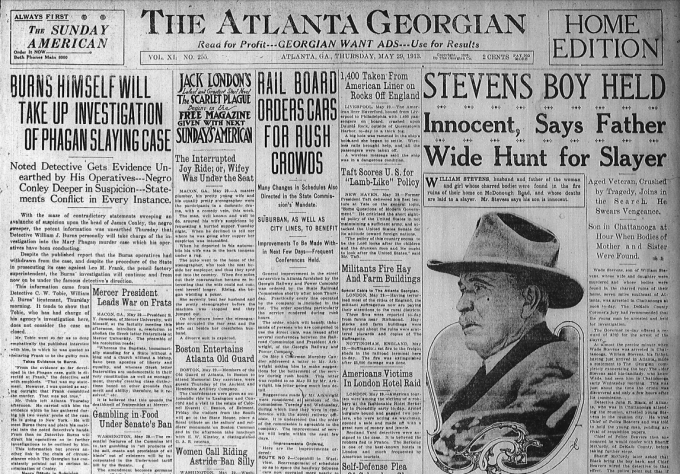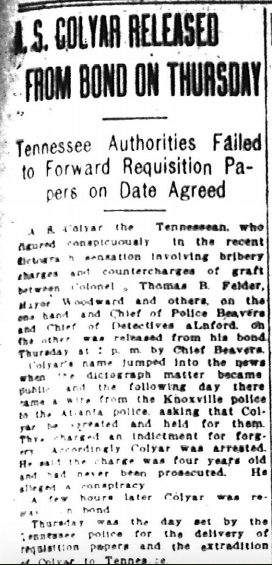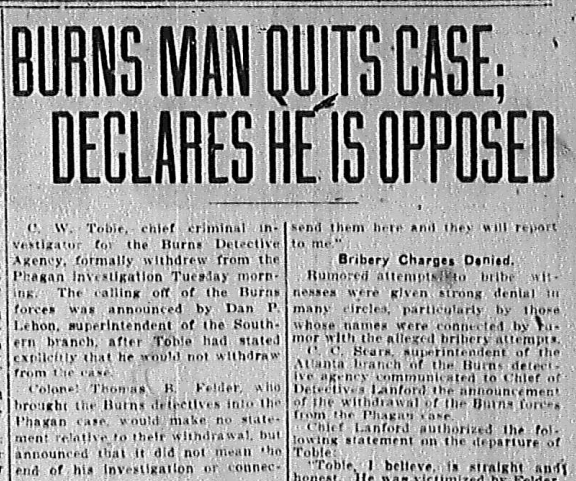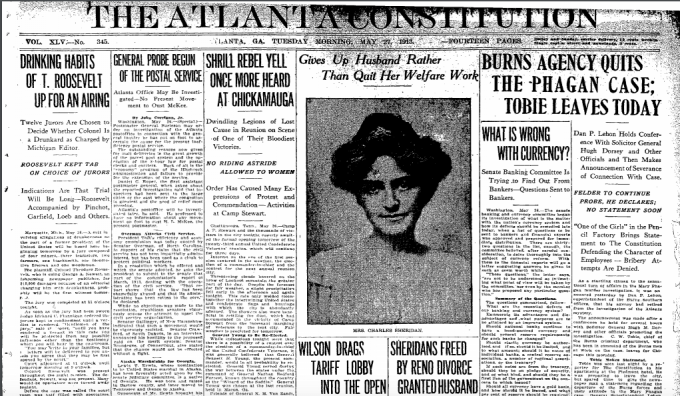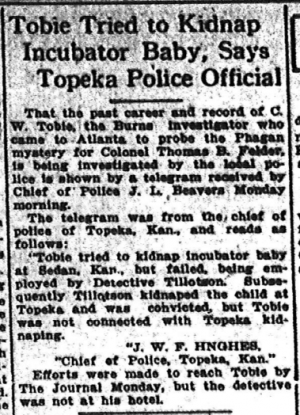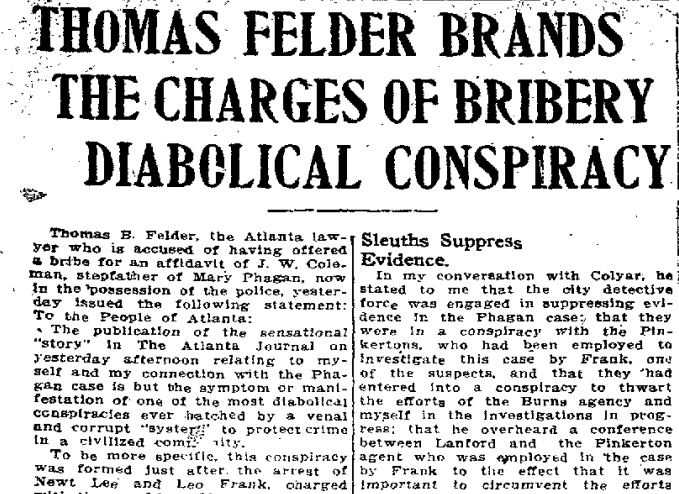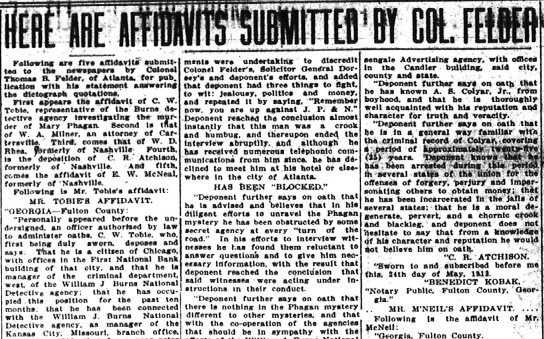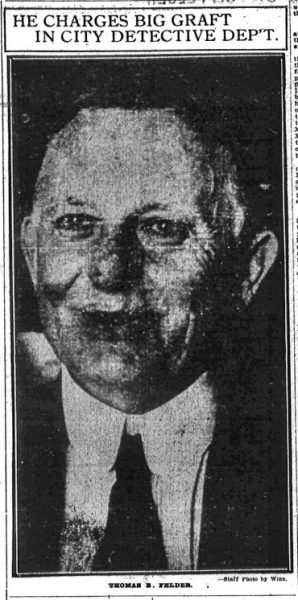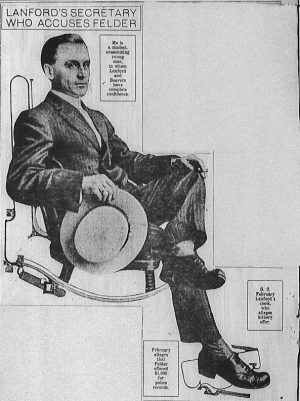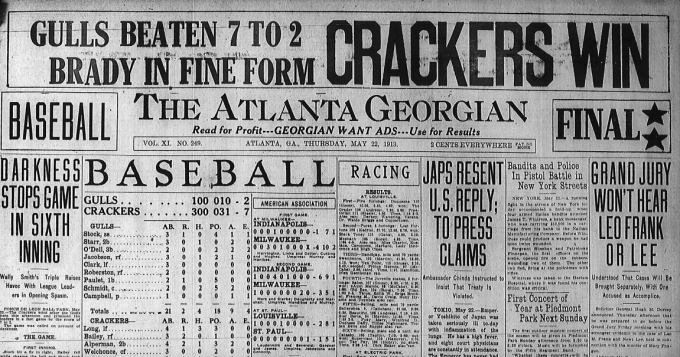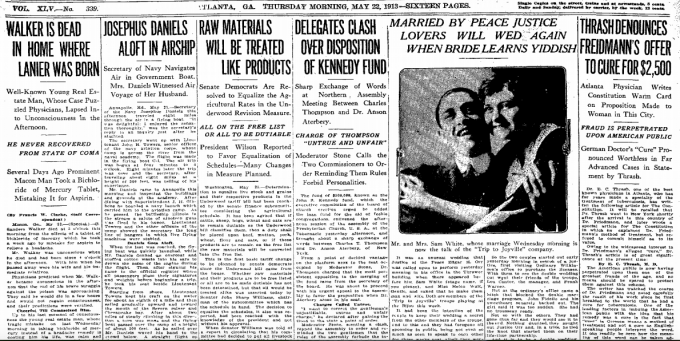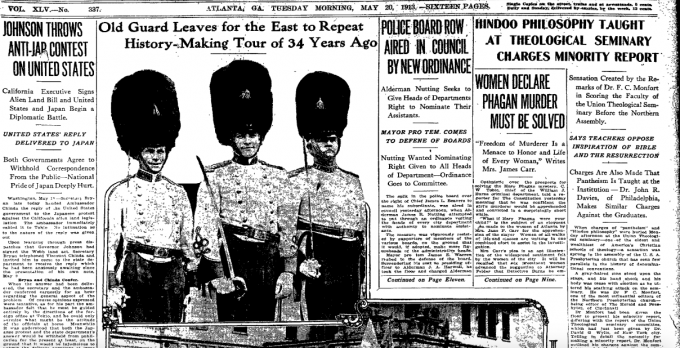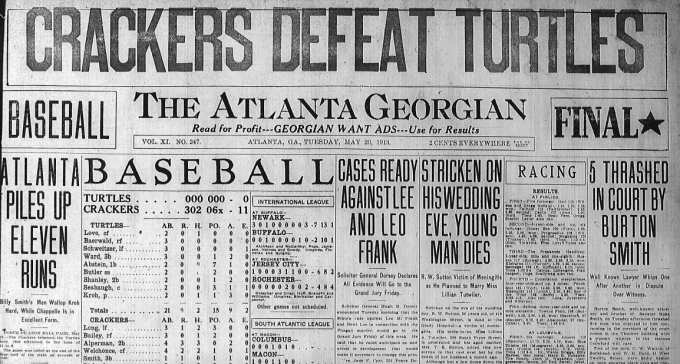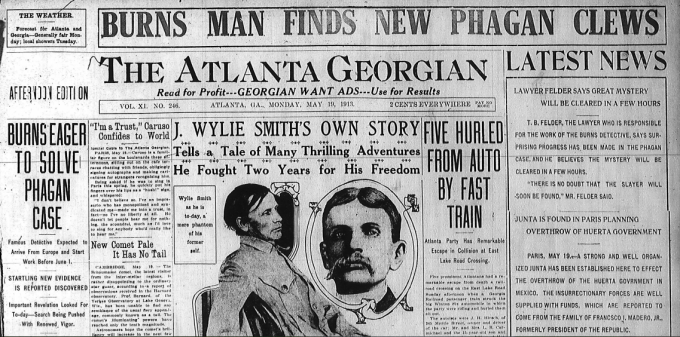 Another in our series of new transcriptions of contemporary articles on the Leo Frank case.
Another in our series of new transcriptions of contemporary articles on the Leo Frank case.
The Atlanta Constitution
June 13, 1913
Felder Says He Will Be Produced at the Proper Time. Notary Declares Affidavit Is Genuine.
Miss Jeannette Henning, the notary public whose official seal was attached to the affidavit made recently by George Gentry, has informed The Constitution that she took the document from him last Monday, and that although it is genuine, she does not know its contents. She states that she had never met Gentry prior to the time he made the affidavit.
Chief Beavers, who has for the past several days been attending the convention of national police chiefs in Washington, is conducting a search of that city for the young stenographer. He is assisted by a number of detectives put at his command by Major Sylvester, head of the Washington police department.
Beavers was requested by Detective Chief Lanford to find Gentry, and to ascertain positively whether or not the youth had attested to the startling affidavit. Thursday noon, Lanford received a message from the chief saying that he was unable to locate his man, but that the search would continue as long as Beavers remained in Washington.

 Another in
Another in  Another in
Another in 
